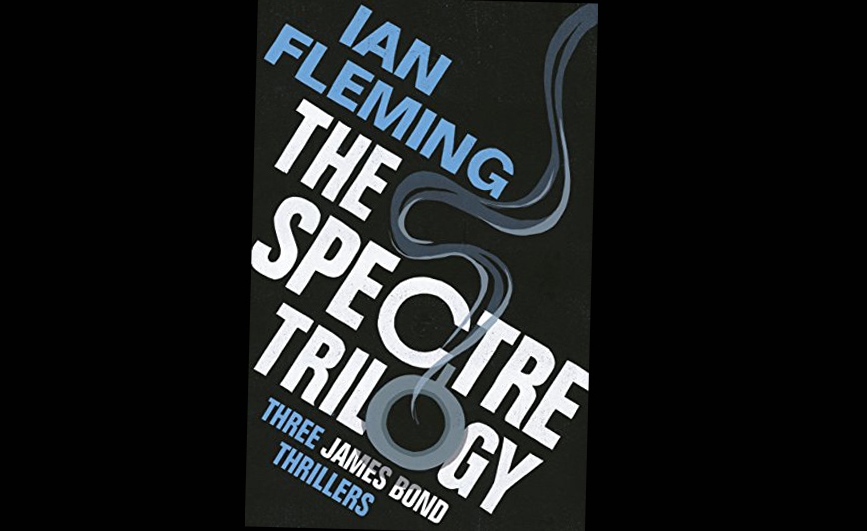 "Al-Qaeda was a 21st century SPECTRE with an ideological bent of mind." [picture: Bond series book cover]
"Al-Qaeda was a 21st century SPECTRE with an ideological bent of mind." [picture: Bond series book cover]
[This is an excerpt from an article in The Round Table: The Commonwealth Journal of International Affairs.]
Post-Cold War globalisation and nonstate actors
By the 1980s, the first shoots of the plant of globalisation had begun to sprout as technology started to create a common global market. Thus, the proliferation of satellites made the beaming of products around the world far easier than it had been in the past and this innovation in technology was further spurred on by the shift in the international political system. The end of the Cold War created one global market and removed the existential threat posed to the west by the Soviet Union. The West had won the Cold War and western-style liberal-democracies with free market systems were seen as the wave of the future leading Yoshihiro Francis Fukuyama to proclaim that we had seen the ‘End of History’ for if history was the dialectic conflict of ideas, then liberal democracy had triumphed.
Yet in this world of free markets some of the major challenges to countries’ economic and national security have come from Fleming’s nonstate actors who have been freed of the constraints of state control and are able to exploit the new technologies of globalisation as well as the freedom of movement it afforded to expand their political and economic agendas.
Globalization, Anti-Globalization and the Commonwealth
The Commonwealth and globalization
While it took two decades for China to emerge as a near peer challenger to the United States, barely a decade after the fall of the Berlin Wall transnational terror was able to strike a devastating blow against the remaining superpower through the attacks of 9/11. Osama bin Laden could have walked out of the pages of a Bond novel since he wreaked havoc on a country’s economic system and its security with a novel use of aircraft – fully fuelled airliners – as weapons of mass destruction. While bin Laden was unable to lay his hands on a nuclear device, his use of airplanes led to the devastation that was similar to that which could be caused by a small nuclear bomb. Al-Qaeda was a 21st century SPECTRE with an ideological bent of mind.
Globalisation also led to a weakening of state control over the market and over both the legal and illegal market forces that operated within it. With the rapid advance of the internet states were unable to control the spread of ideas or the transfer of capital. Nor were they able to prevent the sudden explosion of wealth around the world, a large portion of which was concentrated in the hands of nonstate actors who were engaged in illegal activities. Thus, the Russian Mafia was able to move money and resources around the world as were multiple terror groups.
Globalisation also led to the creation of a new class of tech billionaires whose influence was soon way out of proportion to the size of their enterprises. Thus, corporations like Microsoft, Apple, Amazon, and Facebook soon had global reach and in the case of the latter were by the mid-2010s helping shape and distort political attitudes within societies.
Free market philosophy also saw the state relinquish control over sectors of the economy where it had had a monopoly and where there were recognisable security interests. The privatisation of space, once considered the sole monopoly of governments, has by 2021 led to three entrepreneurs – Richard Branson, Elon Musk, and Jeff Bezos – creating their own space programmes the security implications of which are yet to be fully understood. One can only expect entrepreneurs from other countries to follow suit and it is not sure how their activities will be successfully policed to prevent illegal activities.
Conclusion
Ian Fleming’s portrayal of nonstate actors as a challenge to states was at the time of writing seen as fantasy but over the years the shifts in technology, world politics, and the power of the state have led to a situation where his portrayal of threats from such actors has begun to come true. We now live in an era of transnational terror, international crime that uses high technology, and billionaires who may or may not have the interests of their nation in mind when seeking monetary profits. Fleming’s work may have been a literary plot device and shaped by the decline of the British empire but in the 2020s it still resonates as both relevant and threatening to the existing international system of states.
Amit Gupta is an Associate Professor at the USAF Air University Culture and Language Centre, Montgomery, AL, USA.



